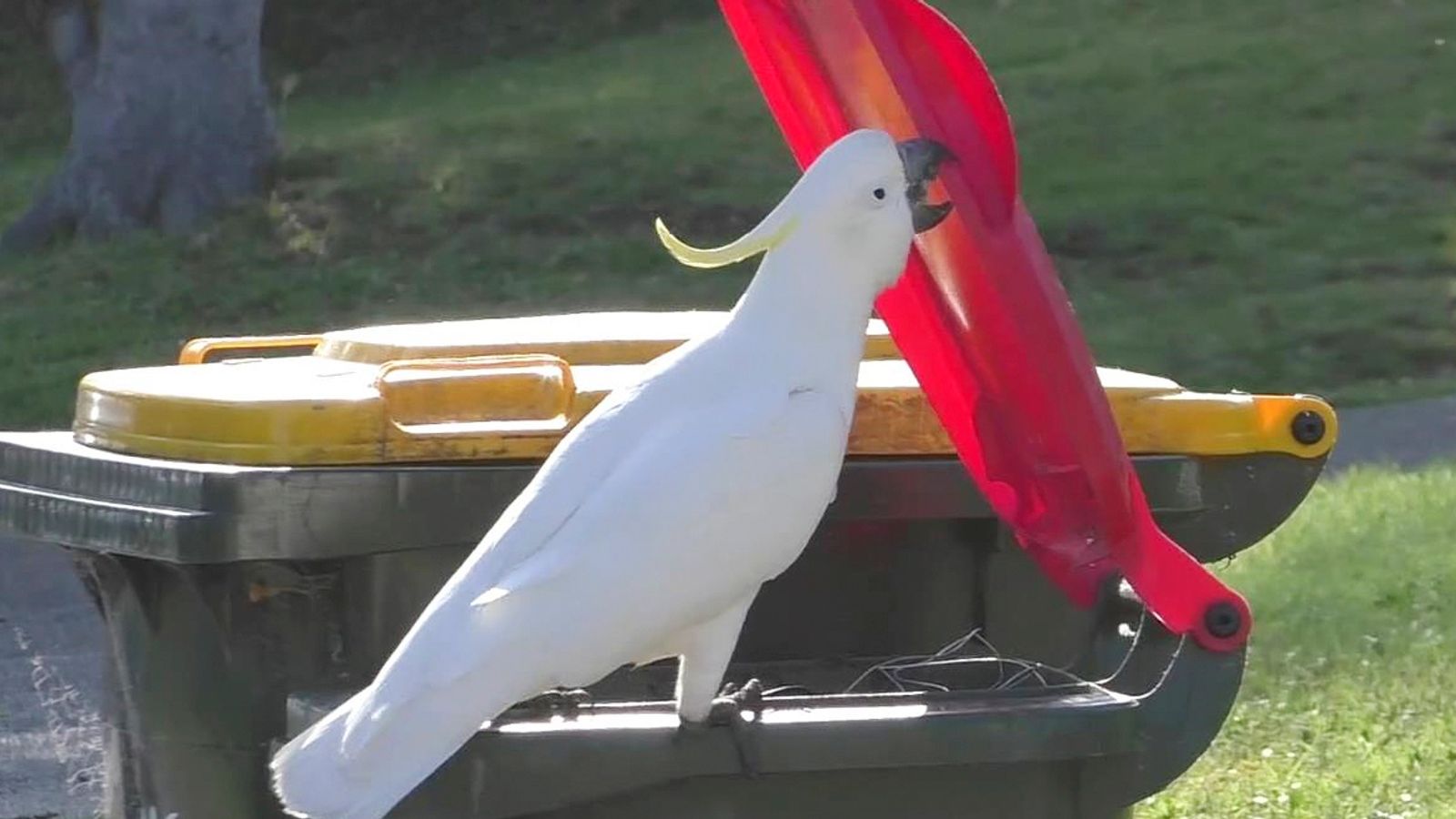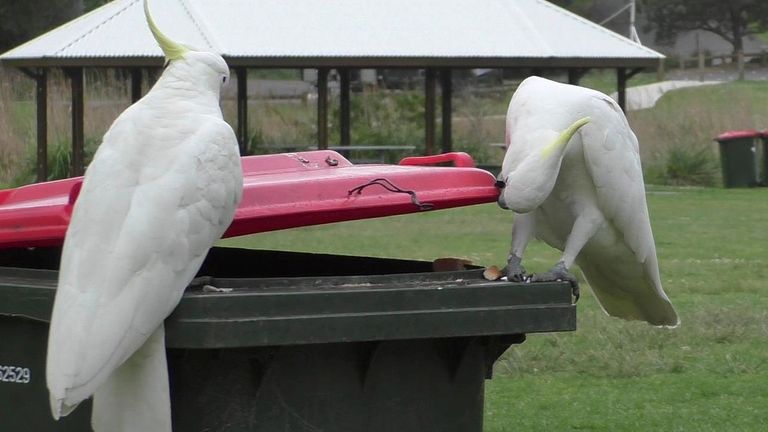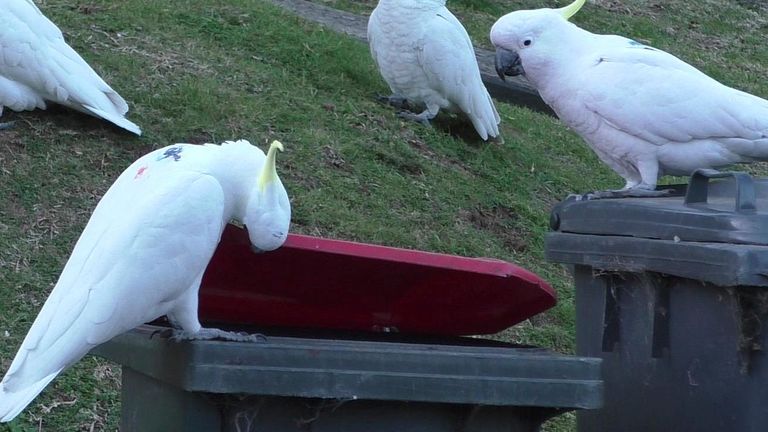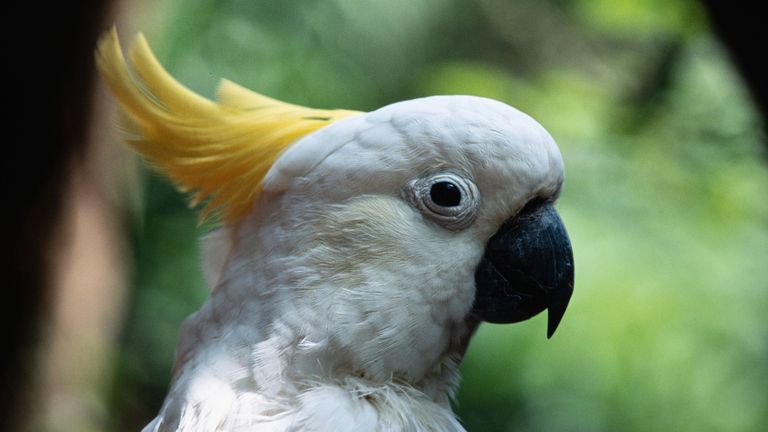Cockatoos in Sydney have learned to open bins – and the technique is catching on, as others have worked out how to do it by watching them, scientists say.
Australian sulphur-crested cockatoos were first observed opening the lids of bins to scavenge for food a number of years ago by ornithologist Richard Major.
Impressed by their ingenuity, Mr Major and researchers in Germany, studied how many cockatoos had learned this trick.
The team documented the phenomenon in three suburbs of Sydney in early 2018, and found that it had spread to 44 suburbs by late 2019.
After analysing videos of 160 of the clever birds lifting bin lids, and, by assessing the geographic spread, they decided most birds learned by watching others.
It is quite a feat of skill for the birds, who must grasp a bin lid their beaks and pry it open.
Then they have to shuffle far enough along the bin’s edge that the lid falls backwards – revealing edible treasures inside.
Mr Major said the “pretty rapid spread” wasn’t random, but “started in southern suburbs and radiated outwards.”
In other words, the birds had learned the trick by watching their peers. And in effect, it caught on like a popular dance
move.
Scientists have documented other examples of social learning in birds, such as blue tits that learned to puncture foil lids of milk bottles in the UK, starting in the 1920s.
Lucy Aplin, a cognitive ecologist at Max Planck Institute of Animal Behaviour in Germany and co-author of the study, said real-time observations of a new “cultural trend” spreading in the wild – or suburbs, in this case – afforded the cockatoo researchers a special opportunity.
“This is a scientist’s dream,” she said.
On rubbish collection day in the Sydney suburbs in the summer of 2019, her colleague Barbara Klump filmed around 160 successful efforts by the birds.
Most of them were males, which tend to be larger than females and also likely to be dominant in social hierarchies.
Ms Klump said: “This suggests that if you’re more socially connected, you have more opportunities to observe and acquire new behaviour – and also to spread it.”
Cockatoos are extremely gregarious birds that forage in small groups, roost in large ones, and are rarely seen alone in Sydney.
While many animals have declined with the expansion of Australian cities, these bold and flamboyant birds have generally thrived.



